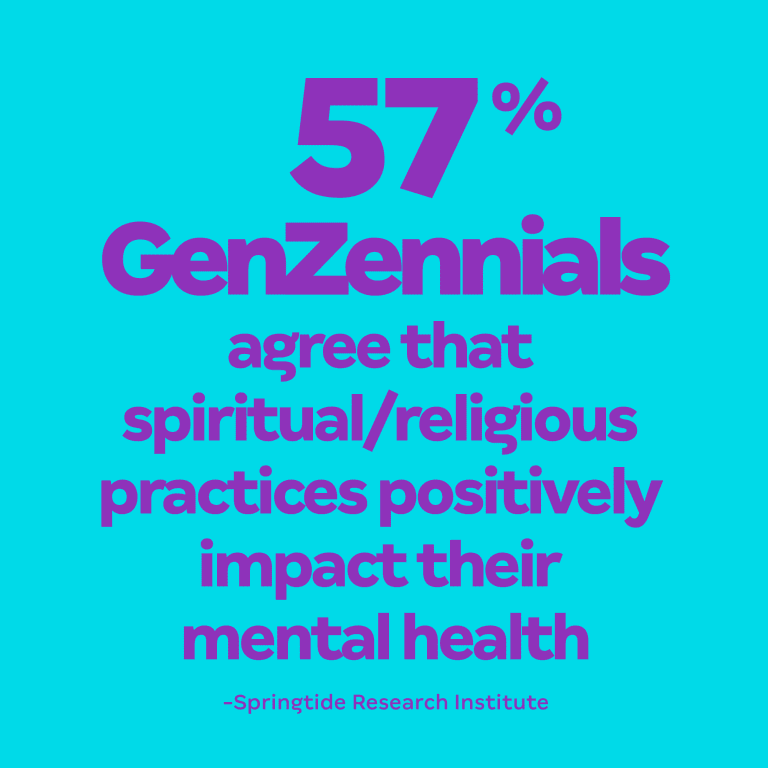
The link between our minds, bodies, and souls has been a hot topic for thousands of years, but researchers haven’t been able to prove it until recently. The positive affect of physical movement on mental health is now well documented, along with the power of mental positivity to improve medical outcomes and athletic performances.
With all of this in mind, how does the spiritual side come into play? Can our attempts to connect with a divine power support us in other ways? A growing number of researchers affirm what spiritual practitioners have been saying for years: yes, it does. A recent study published in the Journal of Health Psychology found that spirituality, religiosity, and prayer frequency have been linked to lower cortisol levels. Cortisol, often called the “stress hormone,” can damage our bodies when chronically elevated.
However, spiritual engagement seems to help keep this hormone at bay. Another recently published Skylight study found that more frequent users of their app’s spiritual exercises reported less stress, anxiety, and sleep issues than less frequent users. Not only does spiritual practice decrease anxiety, but it can also save a life. Multiple studies attest that attending religious services protects against suicide attempts, even after modifying for support, meaning that attending a religious service alone can prevent suicide attempts.
Your immune system, your body’s protection against illness, can be boosted by spiritual practices. In a study of over 1,700 older adults, Duke University Medical Center researchers found that people who practice religion had better immune function than people who don’t, so perhaps a prayer a day can keep the doctor away. Harvard researchers have also found a connection between spirituality or religion and a sense of purpose, estimating that those who frequently meditate or pray are 47 percent more likely to have a sense of purpose and mission than those who don’t.
Springtide Research Institute explored overall well-being further and found that the more spiritual or religious, the more likely a young person is to say they’re flourishing in their mental or emotional well-being. If we had to be honest, spirituality or religion isn’t without its cultural baggage, a reality that typically leads institutions and experts to shy away from discussing its benefits. On the other hand, the growing evidence practically begs us to think about spiritual practice as part of our wellness routine.
Whether we communicate with the divine through meditation, prayer, movement or other practices, our mental and spiritual benefits are real. World Mental Health Day started in 1992 based on efforts by the World Federation for Mental Health. Their membership, which spans 150 countries, hopes to bring attention to mental health and its effects across the globe. Unfortunately, the need for mental health awareness and advocacy is significant. In fact, 63 percent of people said their mental health was poor, according to a poll by Monster.
So, how can you celebrate World Mental Health Day or honor it? One of the first ways is to emphasize visibility. Tell your own story of mental health and post, liking and sharing to emphasize and reinforce the importance of mental health. Also, honor the day by checking in with people you care about. Connection is one of the primary factors in all kinds of well-being. Feeling part of a community and sensing links with others contributes to physical, cognitive and emotional health.
So send a text or an email to a friend. Call a loved one. Stop by and see a neighbor. If someone you know is struggling with mental health, help them feel seen.
